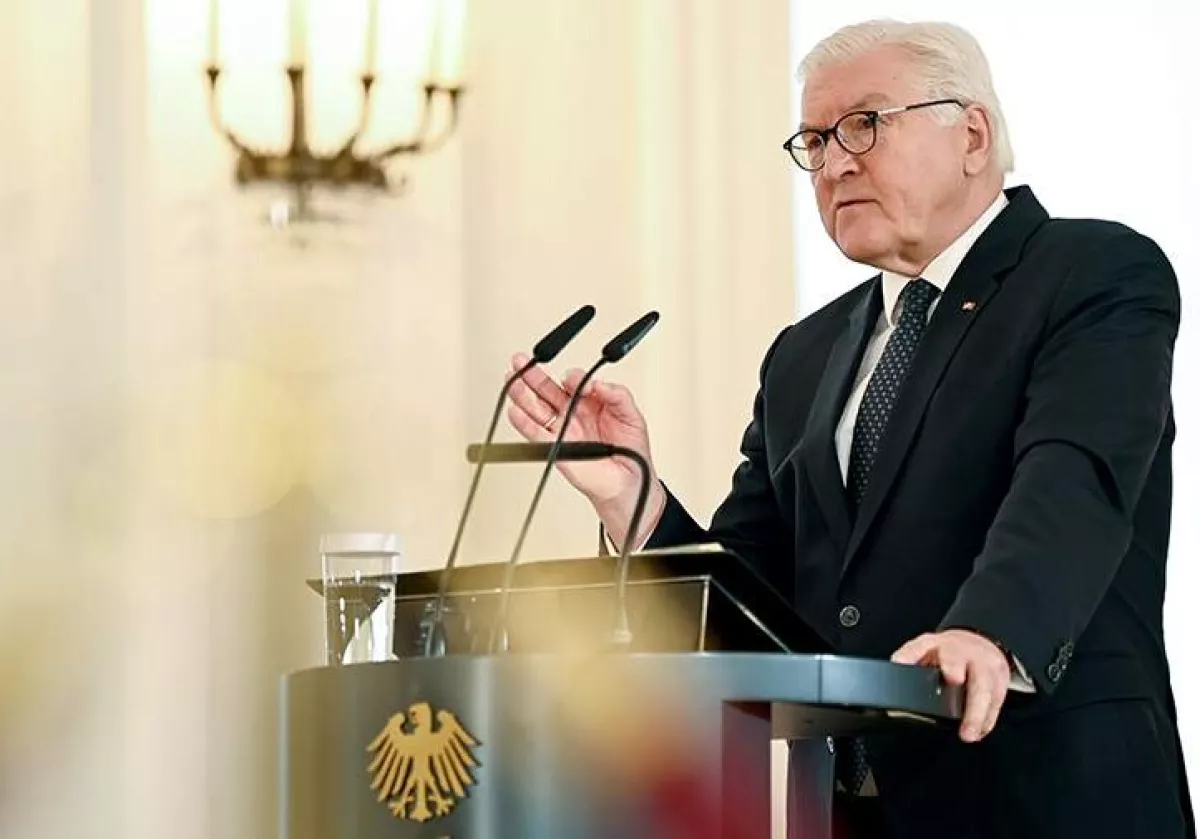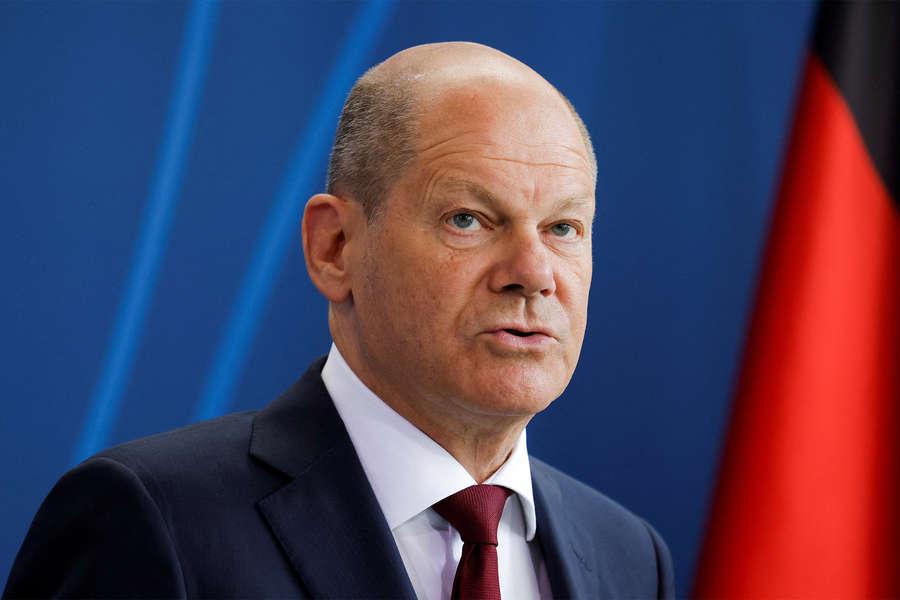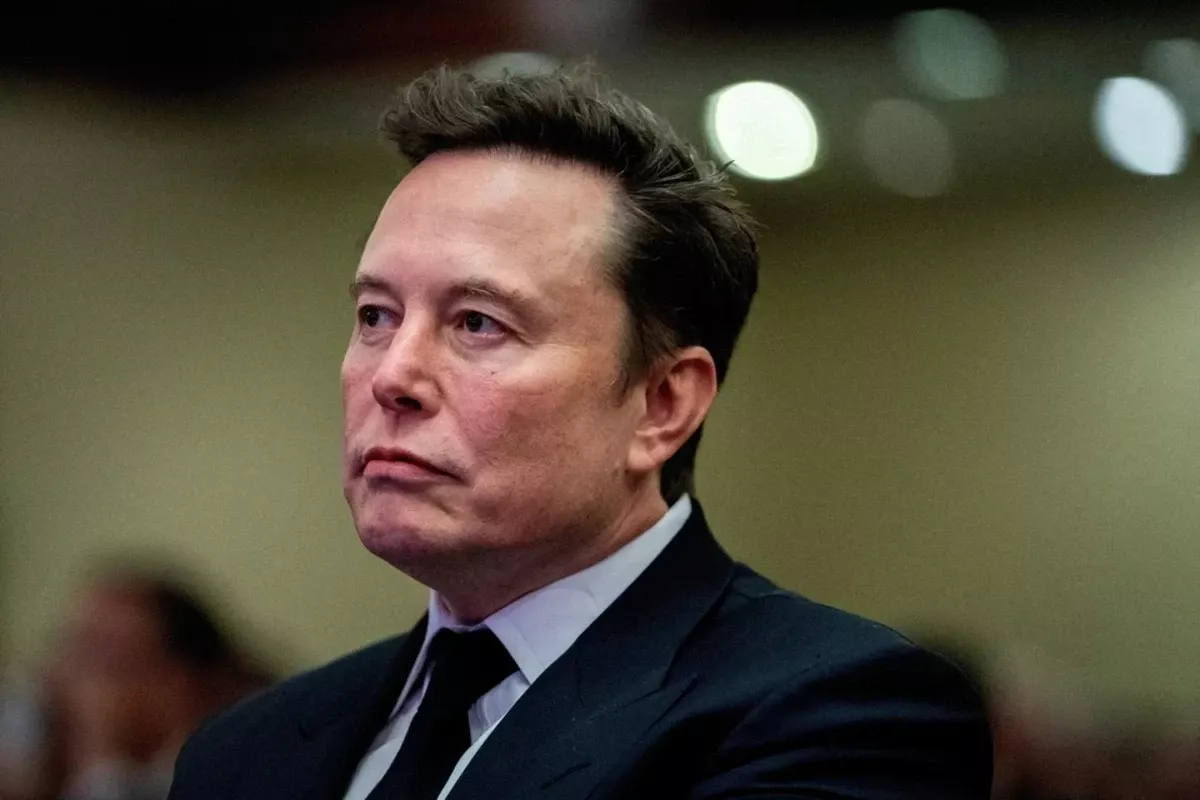Musk's bold statements stir up Europe's political storm Free speech or foreign interference?
On January 6, during a speech in Paris to French ambassadors, French President Emmanuel Macron accused billionaire Elon Musk, the owner of the social media platform X, of meddling in European politics. Although Macron did not name Musk directly, it was clear from his speech who he was referring to, as noted by Politico. However, no evidence was presented to support this claim.
One might ask, "Are you surprised?" Personally, I will refrain from doing so. But let me quote Macron: "Ten years ago, who could have imagined it if we had been told that the owner of one of the largest social networks in the world would support a new international reactionary movement and intervene directly in elections, including in Germany?" The French president said exactly that, referring to this "reactionary international" and hinting at the inappropriateness of interfering in Germany's elections.
Let us momentarily set aside whether Macron himself has been overly involved in the affairs of both nearby and distant countries. What concerns us more is that, once again, he seems to be deliberately confusing cause and effect — and the key word here is "deliberately."

On August 4, 2016, Frank-Walter Steinmeier (who was then the German Foreign Minister) harshly criticized U.S. presidential candidate Donald Trump, managing to call him a "hate preacher." In other words, it was the Germans (and not only them) who started the open attacks on Trump. Later, during Trump's second presidential campaign, many European leaders openly supported the U.S. Democratic Party. To provide evidence, let's mention just a few quotes from European officials in 2024.
Swedish Prime Minister Ulf Kristersson: "Most European leaders are scared of the risk of the re-election of former U.S. President Donald Trump." Finnish Prime Minister Petteri Orpo said he was alarmed at the prospect of a trade war. “It should not be allowed to happen,” he said. “Let’s now try to influence the US and Trump’s future policy so that he understands the risks involved.”
Luxembourg Prime Minister Luc Frieden: "President Trump is known for a certain degree of unpredictability and instability..."
European Commission President Ursula von der Leyen unequivocally supported the Democrats, stating: "There is a need for unity within the EU to overcome new challenges and cooperate with the U.S. under Biden's leadership."
But that's not all. German Chancellor Olaf Scholz said: "My friend President Joe Biden has achieved a lot: for his country, for Europe, for the world. Thanks to him, transatlantic cooperation is close, NATO is strong and the USA is a good and reliable partner for us." Isn't there a conflict of interest here? Think about it: the friend of U.S. President Joe Biden holds the position of Chancellor of Germany. How consistent will he be in protecting the interests of his own country, and how much influence will his friend, President Biden, have on the decisions made by the Chancellor? Well, that's just a question for the noosphere.

Spanish Prime Minister Pedro Sánchez also joined the chorus of praise, openly expressing his admiration for Joe Biden's "brave and dignified" decision to exit the presidential race: "All my admiration and recognition for the brave and dignified decision of the President of the United States Joe Biden. Thanks to its determination and leadership, the US overcame the economic crisis after the pandemic." One might wonder, what’s the connection between Biden’s exit from the presidential race and his determination to overcome the economic consequences of the pandemic?
Polish Prime Minister Donald Tusk also showered Biden with compliments: "Dear President Joe Biden. You’ve taken many difficult decisions thanks to which Poland, America and the world are safer."
Well, here I’ll just refrain from commenting, and I’d recommend the same to those around me.
Now, let me share some public statements by Musk that drive already anxious European politicians to the edge: "Only the AfD can save Germany." Immediately, there were cries in Berlin about "interference in elections" and "propaganda of extremism." What’s happening here? Someone shares their opinion—doesn’t that fall under the fundamental liberal principle of freedom of speech? Or is this situation somehow different?

"Scholz should resign immediately. Incompetent fool," wrote Musk, commenting on a post by another social media user who commented on Scholz’s reaction to the attack in Magdeburg. The person’s comment was simply an expression of their personal opinion and was not subject to punishment. Well, yes, Musk did have one small sin—he called German President Frank-Walter Steinmeier "an anti-democratic tyrant," but let's not forget that Steinmeier himself, without any grounds, called Trump a "hate preacher."
Speaking about Europe's migration policy, Elon Musk stated: "…If current trends continue, civil war in Europe is inevitable."
Of course, one could argue here, but Musk didn’t say that a civil war in Europe is guaranteed—he merely made a prediction based on the analysis of current trends. However, even if such a war does break out, I think it would be their internal, pan-European tragedy.
Musk’s response to former European Commissioner Thierry Breton was particularly sharp and witty. It came after Breton made a pompous statement: “A few weeks ahead of the next elections in Germany, and at the time of the heinous attack in Magdeburg, Elon Musk— the world's top influencer on X and a potential member of the future U.S. administration — openly supports the far-right AfD party. Isn't this the very definition of foreign interference? We must end the ‘double standards’ and apply the DSA in Europe.”
Musk fired back with: “Bro, American ‘foreign interference’ is the only reason you’re not speaking German or Russian.”
The response is undoubtedly worthy of applause, especially when viewed within the broader historical context. Consider the irony of how the French resisted fascism during World War II—one Pavlov's House in Stalingrad withstood German forces longer than the entire French defence. History provides valuable lessons, particularly from World War II. On May 15, 1940, the French, in despair, were begging the U.S. to intervene in the European conflict urgently. The U.S. promised to consider it but requested that France at least stop lying on the floor, whining.
The U.S. acted according to its own interests, as it always does. As one statement from the time went, "I won’t act when it’s time to save the ideals of humanism," but "when I deem it necessary and timely." Is there any nation that acts differently? The rhetoric of “we won’t compromise our principles” rings hollow—no one genuinely believes it, and those who still do will be disappointed. When it benefits them, compromises will certainly be made. European history can ultimately be distilled into one well-known adage: "Paris is worth a Mass." In other words, everything is secondary to “debit and credit.”

So, there’s no reason to be offended, and no one to blame; they started it first—now they shouldn’t complain. European leaders themselves opened the "Pandora's box" with their derogatory comments about Trump.
Let’s shift focus from European and American affairs and return to our region. The French Ambassador to Georgia, Sheraz Ghasri, referred to President Macron’s suggestion that new elections in Georgia could be a way out of the political crisis. In essence, Macron implied that the election results in Georgia were incorrect because his candidates barely made it into parliament. This was met with a response from the Speaker of the Georgian Parliament, who stated that while he had no intention of interfering in France’s internal politics, the fact that 61% of French people support Macron’s resignation and 50% favour the dissolution of the National Assembly makes the idea of new elections a valid solution to France’s political crisis. This response is both fair and reasonable.








